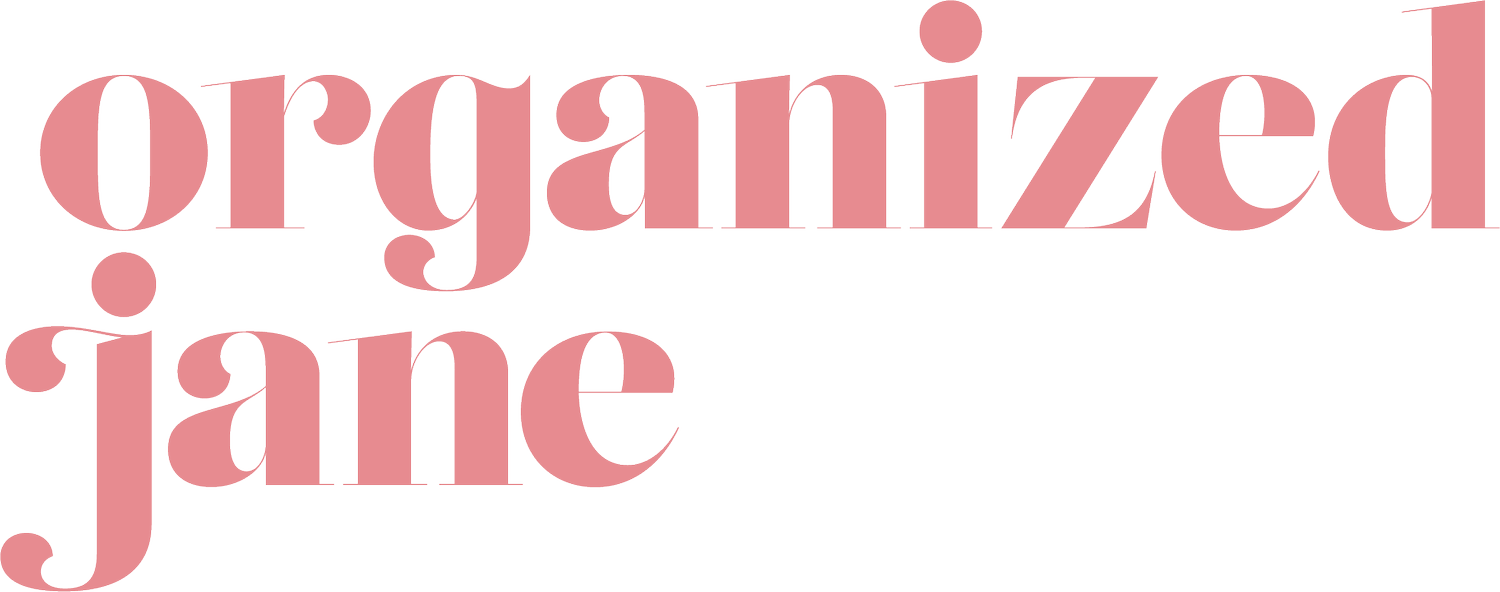Remove Clutter, Reduce Overwhelm
Clutter equals overwhelm.
For this blog post in video form, please head to my YouTube channel or check the bottom of this post.
To reduce overwhelm, you need to start decluttering.
It’s that simple! And it’s why I am devoted to giving you the how-to on decluttering and showing you the importance of organizing. You don’t have to become a minimalist—just don't be the clutterbug.
I don’t have a psychology degree, but I’ve done enough research on this topic to inspire others to get motivated. You get peace and satisfaction from being in a decluttered space, both physically and mentally. I could end here, but I want to keep going with this point. You can correlate the feeling of being defeated and overwhelmed to the amount of clutter that exists. When clutter exists, your energy is affected physically, mentally, and emotionally.
Clutter always reveals your mindset. If you operate with low self-esteem, you may own more expensive clothing than necessary because you use retail therapy as a means to feel happy. If you are worried about money, you may keep items that you don’t necessarily need. If you’ve dealt with loss and grief, you may be more attached to sentimental items than someone who has not gone through similar experiences. The bottom line is that clutter is a symptom of deeper things going on in your psyche, and when you deal with clutter, you can transform into the person you are meant to be.
Go back to a time when you were surrounded by clutter and think about how it made you feel. It could be a cluttered desk, a stuffed attic, or your mind full of so many tasks you didn’t know where to start. You don’t need a psychology degree to understand that when you think back to these times you get a bit stressed — or in medical terms, your cortisol levels rise.
I will tell you how a few simple tips can help.
I am Jane Stoller, a life-biz organizer who found my passion in decluttering spaces and optimizing business processes. I have written two lifestyle organizing books and have spent over 10 years helping businesses gain back time through decluttering, and now I want to help more people get organized like a BOSS.
Another motivating factor can be stopping to listen to your partner’s feelings about the clutter each of you leaves in the house. Make sure you share decluttering habits with your partner, employees, team etc.. Share your reasons for wanting to declutter and your strategies. For example, you might show your partner the new boxes you labeled “Donate,” “Recycle,” “Trash,” “Sentimental,” and so on. Remember, your partner may get worried upon hearing that you’re decluttering and fear that you are going to get rid of everything. Be willing to listen to your partner’s concerns, voice your reasons for wanting to declutter, and ask for support throughout the process. You can even shed light on the negative effects of clutter to help your partner under- stand how getting rid of excess stuff can and will improve both of your lives.
1.Get rid of what you don’t need and improve your emotional wellbeing.
I bet you’re thinking that today’s consumerist society and keeping up with the Jones’s mean that we have to have a lot of stuff—and keep buying more stuff to put in our bigger houses. However, if you see your stuff spreading to a level that you can’t organize or keep clean, this can cause stress, especially if you take pride in having a tidy home. Therefore, having a cluttered environment can result in feelings of low self-worth, and even depression in some cases!
I am curious to know the largest clutter item that you have that you know causes you stress? Your closet? Your computer files? Your inbox? Or your mind? Or even all of the above?
2.IMprove your focus.
I talk about this at length when I get to workstation decluttering, but I also think it needs to be discussed in terms of life in general. I think deep down we all know that clutter is and always will be distracting. This is not rocket science or anything new.
Clutter can compete for your brain’s focus, thereby not allow you to give your full focus to what is important. It takes more energy to actively avoid and ignore clutter than it does to actually deal with it.
3.Change your behavior.
A large part of your energy can be attributed to your surroundings. Waking up to an efficient home with things you use daily versus waking up to a big pile of junk makes a difference. This can also influence the behavior of your kids, friends, and even fur babies. Clutter can cause a chaotic environment not only for you but also for those around you. For example, entering a doctor’s waiting room that’s so busy you can barely sit and fill out forms affects your mood differently than entering a sterile, clutter-free environment. Never discount the powerful effect of clutter on your mental and emotional well-being.
As a thank you for reading, I want to give you a bonus resource you can start using right away in your business. It guarantees more productivity in your home office. Digitizing receipts. Never miss or lose a tax write off and save hours weekly and during tax season. Download below. And remember they don’t have to be perfect but organized, findable and a system not to forget what the write off was for!
Plus for extra productivity use this time cube.
Book your free 30 minute office declutter call with me here.
Read more: How To Stay Organized in Life


